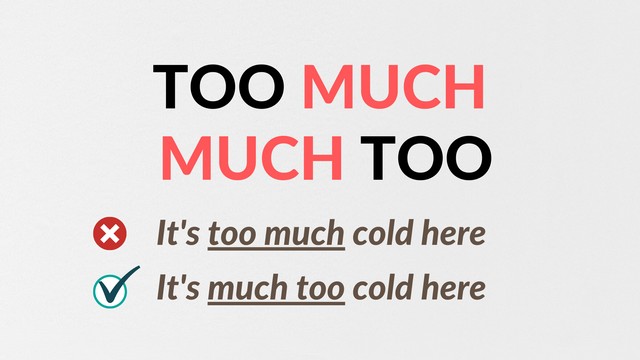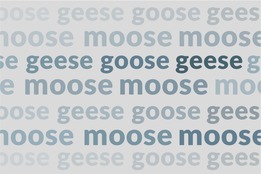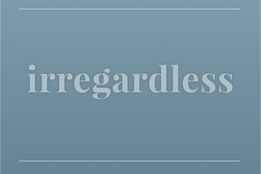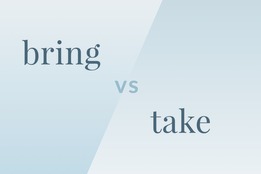-
#1
Hello, everyone
Let’s say I am watchin a movie with a friend and I want to know how much longer it will take. Should I say «long» or «longer»?
«Will it still take too much longer/ Will it still take too much longer for this movie to end?»
or
«Will it still take too much long?/Will it still take too much long for this movie to end?»
Could I use any of those?
Thank you
-
#2
Let’s say I am watching a movie with a friend and I want to know how much longer it will take.
I’d ask, «How much longer will the movie be?»
-
#3
«Too much longer» really only works in the negative: «I don’t think it will be too much longer.»
-
#4
I’d ask, «How much longer will the movie be?»
«Too much longer» really only works in the negative: «I don’t think it will be too much longer.»
It is really better if we use «how much longer», but what if I use «take» and «too much long/longer»? Does’t any of my alternatives work? Even if I take «too» out? Like : Will it/this movie (still) take much longer? or «Will it(still) take much longer for this movie to end?
-
#5
It is really better if we use «how much longer», but what if I use «take» and «too much long/longer»? Does’t any of my alternatives work? Even if I take «too» out? Like : Will it/this movie (still) take much longer? or «Will it(still) take much longer for this movie to end?
«Will this movie take much longer [to end]?» works, although «Is this movie almost over?» is more natural.
-
#6
«Will this movie take much longer [to end]?» works, although «Is this movie almost over?» is more natural.
what if I add «for» —> Will it take much longer for this movie to end?
-
#7
what if I add «for» —> Will it take much longer for this movie to end?
That works, yes.
-
#8
The Newt,
when you said «too much longer» only works in the negative, is that because of «too»?
-
#9
The Newt,
when you said «too much longer» only works in the negative, is that because of «too»?
Yes.
-
#10
Will it take much longer for this movie to end?
You don’t need «to end», because it’s understood that you’re talking about the time between now and the end of the movie. All you need is «Will this movie take much longer?»
-
#11
You don’t need «to end», because it’s understood that you’re talking about the time between now and the end of the movie. All you need is «Will this movie take much longer?»
And «long» instead of longer?
Will be this movie take long?
or «longer» with «still»?
Will this movie still take much longer?
Does either of these sentences work?
-
#13
Sorry, no.
![Frown :( :(]()
The first one does not have the first be». I mistyped it.
It should be » Will this movie take long/ or/ Will this movie be long… Don’t either of them work?…
And Why can’t I say «will this movie still take/be much longer»? Is it wrong to say «take/be much longer»?
Thank you, Parla!
Happy Easter!
-
#14
You could ask «Will this movie take long?» if someone had asked you to watch it and you wanted to express your annoyance at having to spend the time doing so. The clear implication is that you do not want to spend our time watching the movie.
Any version of the question that uses «…be much longer» is incorrect because we use «Will it be much longer?» when we’re impatiently waiting for something to begin, not for something to end. «Will it be much longer before the doctor can see me?» «We need to leave soon. I know you’re still working, but how much longer will you be?»
«Will this movie take much longer?» is not grammatically incorrect, but it sounds odd and, like your other options in #13, conveys impatience.
-
#15
You could ask «Will this movie take long?» if someone had asked you to watch it and you wanted to express your annoyance at having to spend the time doing so. The clear implication is that you do not want to spend our time watching the movie.
Any version of the question that uses «…be much longer» is incorrect because we use «Will it be much longer?» when we’re impatiently waiting for something to begin, not for something to end. «Will it be much longer before the doctor can see me?» «We need to leave soon. I know you’re still working, but how much longer will you be?»
«Will this movie take much longer?» is not grammatically incorrect, but it sounds odd and, like your other options in #13, conveys impatience.
Florentia52, but if the movie is too boring and lame, could I say «will this movie still take/be much longer? .. or , let’s say the doctor’s secretary is answering the question «will it be much longer before the doctor can see me», would it be possible to say «he won’t take/be much longer»? do either of them work? «Will this movie still take/be much longer?» and he won’t take/be much longer»?… I mean, conveying a sense of impatience..
Thank you so much for all, Florentia52!!
-
#16
As I said in #14, your questions and sentences with «be» will work in the case of waiting for the doctor to see you, but not in the case of a movie you’re watching. I see I disagree slightly with Parla in #2 in this regard. I agree with her, however, in her answer to you in #12 regarding «Will this movie still take much longer?»
If I’m tired of a boring movie and want to know how much time is left to go in it, I will probably ask «How much longer is this movie?» or «How much time do we have left to go in this movie?» or «Are we close to the end?» or (more casually) «How much more is there?» I would not use any of the options you have proposed in this thread.
-
#17
As I said in #14, your questions and sentences with «be» will work in the case of waiting for the doctor to see you, but not in the case of a movie you’re watching. I see I disagree slightly with Parla in #2 in this regard. I agree with her, however, in her answer to you in #12 regarding «Will this movie still take much longer?»
If I’m tired of a boring movie and want to know how much time is left to go in it, I will probably ask «How much longer is this movie?» or «How much time do we have left to go in this movie?» or «Are we close to the end?» or (more casually) «How much more is there?» I would not use any of the options you have proposed in this thread.
I see.
Just two last things, Florentia,
Why did you say «your sentences with ‘be'»? is it wrong to say «will something take much longer/take long», by using «take»?
And «still».. can I say «will the doctor be/take(if I can use ‘take’) still much longer»?… or a mother saying to her son over the phone: ‘Heat up your brother dinner. I will still take/be a little longer (to get home)’.
Thank you for all, Florentia!
Last edited: Mar 28, 2016
-
#18
As I said in #14, your questions and sentences with «be» will work in the case of waiting for the doctor to see you, but not in the case of a movie you’re watching. I see I disagree slightly with Parla in #2 in this regard. I agree with her, however, in her answer to you in #12 regarding «Will this movie still take much longer?»
If I’m tired of a boring movie and want to know how much time is left to go in it, I will probably ask «How much longer is this movie?» or «How much time do we have left to go in this movie?» or «Are we close to the end?» or (more casually) «How much more is there?» I would not use any of the options you have proposed in this thread.
I would just like to know that
Can’t I use «take»? —> will something take much longer/take long»??
And does «still» sound odd in the examples I gave (the example of the doctor and the example of the mother talking to her son)?
Thank you so much, Florentia!
-
#19
Hello, everyone
Let’s say I am watchin a movie with a friend and I want to know how much longer it will take. Should I say «long» or «longer»?
«Will it still take too much longer/ Will it still take too much longer for this movie to end?»
or
«Will it still take too much long?/Will it still take too much long for this movie to end?»
Could I use any of those?
Thank you
i think you have to use first option such as will it still take too much longer
-
#20
But is it wrong to say «still» —> Like in these sentences: can I say «will the doctor be/take(if I can use ‘take’) still much longer»?… or a mother saying to her son over the phone: ‘Heat up your brother dinner. I will still take/be a little longer (to get home)’.
Please, I just want to know that.
-
#21
You could ask «Will this movie take long?» if someone had asked you to watch it and you wanted to express your annoyance at having to spend the time doing so. The clear implication is that you do not want to spend our time watching the movie.
Any version of the question that uses «…be much longer» is incorrect because we use «Will it be much longer?» when we’re impatiently waiting for something to begin, not for something to end. «Will it be much longer before the doctor can see me?» «We need to leave soon. I know you’re still working, but how much longer will you be?»
«Will this movie take much longer?» is not grammatically incorrect, but it sounds odd and, like your other options in #13, conveys impatience.
Florentia, in the example of the doctor, could I say «take» instead of «be»? : » Will it still take much longer?»/»I will still take a little longer»?
Thank you for all, Florentia
Одна из ошибок, которые я часто совершал — неправильное употребление too much. Я говорил так: «This is too much hard» или «The light is too much bright», то есть использовал too much с прилагательным. В этой статье я расскажу, как использовать наречие too в значении «слишком», too much и much too.
Как использовать too, far too, way too, much too, a little too, a bit too (в значении «слишком»)
Наречие too может значить «тоже» или «слишком». Как «тоже» оно обычно употребляется в конце утвердительного предложения.
I like vanilla ice-cream too! — Мне тоже нравится ванильное мороженое!
Подробнее о too в этом значении читайте в этой статье: «Разница между too и either». Сейчас нас интересует too в значении «слишком».
В значении «слишком» это слово употребляется перед прилагательными или другими наречиями:
You are too strict with children. — Вы слишком строги с детьми.
She is too young for the part. — Она слишком молода для этой роли
You drive too fast! — Ты едешь (на машине) слишком быстро!
Please, don’t speak too loudly. — Пожалуйста, не говорите слишком громко.
Добавив way или far, мы можем усилить наречие too, то есть way/far too — это уже не просто «слишком», а «слишком уж», «чрезмерно», «чересчур»:
This game is way too easy for me. — Эта игра слишком уж легкая для меня.
She is far too talented for such a small part. — Она чересчур талантлива для такой маленькой роли.
К этим же усилителям можно отнести и much, получается much too (именно much too, а не too much):
This fabric is much too delicate for tents. — Эта ткань слишком тонкая для палаток.
The director is much too unexperienced for such a big project. — Режиссер слишком неопытен для такого большого проекта.
Любопытно, что too можно не только усилить, но и ослабить: a bit too, a little too — «немножко слишком». Мы как бы говорим «слишком», но смягчаем выражение. Классический пример: «a bit too late», буквально «немножко слишком поздно» — обычно с долей иронии.
I’m afraid, you are a little (a bit) too late, I’m already married. — Я боюсь, что ты немножко опоздал, я уже замужем.
Теперь давайте посмотрим, как и когда мы используем too much.
Напомню, much too мы можем использовать с прилагательными и наречиями. В данном случае too («слишком») несет основное значение, а much — усиливает его:
He is much too short for a basketball player. — Он слишком уж невысокий для баскетболиста.
You talk much too slowly. — Ты говоришь чересчур медленно.
А вот too much НЕЛЬЗЯ использовать с прилагательными. В данном случае much (много) — это основное значение, а too — просто его усиливает, то есть too much = слишком много. Сочетание too much мы используем такими способами:
1. Перед неисчисляемым существительным или герундием
I spent too much time. — Я потратил слишком много времени.
You can’t have too much friendship in your life. — В жизни не может быть слишком много дружбы.
The reason of his disease is simple — too much smoking. — Причина его болезни проста — слишком много курения.
Напомню, слово much используется с неисчисляемыми существительными, а с исчисляемыми мы используем many. Подробнее об этом в статье: «Much, many, much of, many of — «много» по-английски».
2. После глаголов
You don’t feel well because you work too much. — Ты плохо себя чувствуешь, потому что слишком много работаешь.
Don’t drink too much. — Слишком много не пей.
Моя ошибка, которую я упомянул в начале, заключалась в том, что я использовал too much с прилагательными, а на самом деле с прилагательными нужно использовать much too, way too, far too или просто too:
- Неправильно: It’s too much cold here. — Здесь чересчур холодно.
- Правильно: It’s way/far/much too cold here. — Здесь чересчур холодно.
Также с too much есть полезное выражение «It’s too much!» — «это слишком!», «это уже перебор!»
I’m not going to lend you more money. It’s too much! You already owe me a lot! — Я не собираюсь давать тебе в долг еще денег. Это уже слишком! Ты уже и так мне много должен!
Здравствуйте! Меня зовут Сергей Ним, я автор этого сайта, а также книг, курсов, видеоуроков по английскому языку.
Подпишитесь на мой Телеграм-канал, чтобы узнавать о новых видео, материалах по английскому языку.
У меня также есть канал на YouTube, где я регулярно публикую свои видео.
Filters
Filter synonyms by Letter
A B C D E F G H I J K L M N O P Q R S T U V W Y
Filter by Part of speech
adjective
adverb
phrase
noun
phrasal verb
Suggest
If you know synonyms for Too much, then you can share it or put your rating in listed similar words.
Suggest synonym
Menu
Too much Thesaurus
Definitions of Too much
External Links
Other usefull sources with synonyms of this word:
Synonym.tech
Thesaurus.com
Wiktionary.org
Photo search results for Too much






Image search results for Too much






Cite this Source
- APA
- MLA
- CMS
Synonyms for Too much. (2016). Retrieved 2023, April 12, from https://thesaurus.plus/synonyms/too_much
Synonyms for Too much. N.p., 2016. Web. 12 Apr. 2023. <https://thesaurus.plus/synonyms/too_much>.
Synonyms for Too much. 2016. Accessed April 12, 2023. https://thesaurus.plus/synonyms/too_much.
Thesaurus
Synonyms of too much
-
as in great
- as in great
-
Entries Near
-
-
Cite this EntryCitation
-
Share
Show more -
-
Show more
-
Citation
-
Share
-
-
-
To save this word, you’ll need to log in.
Log In
-
To save this word, you’ll need to log in.
too much
phrase
Definition of too much
as in great
of the very best kind
«Your jokes are just too much,» he said, laughing.
Synonyms & Similar Words
Relevance
-
great
-
excellent
-
fine
-
wonderful
-
awesome
-
terrific
-
lovely
-
fantastic
-
beautiful
-
hot
-
fabulous
-
superb
-
stellar
-
prime
-
good
-
marvelous
-
quality
-
neat
-
number one
-
cool
-
top
-
classic
-
grand
-
famous
-
heavenly
-
numero uno
-
mean
-
all right
-
capital
-
superior
-
immense
-
choice
-
slick
-
marvellous
-
par excellence
-
brave
-
divine
-
topping
-
exceptional
-
keen
-
splendid
-
noble
-
banner
-
sensational
-
frontline
-
boffo
-
sterling
-
out of this world
-
prize
-
unsurpassed
-
nifty
-
dynamite
-
down
-
bumper
-
bully
-
dandy
-
decent
-
superlative
-
fab
-
swell
-
radical
-
hype
-
phat
-
wizard
-
primo
-
groovy
-
crackerjack
-
gangbusters
-
prizewinning
-
bonny
-
topflight
-
special
-
brag
-
righteous
-
supernal
-
peachy
-
dope
-
better
-
corking
-
boss
-
cracking
-
adequate
-
peachy keen
-
No. 1
-
A—OK
-
acceptable
-
fantabulous
-
gangbuster
-
first—class
-
high—class
-
top—notch
-
first—rate
-
tip—top
-
A1
-
jim—dandy
-
bonnie
-
top—of—the—line
-
out—of—sight
-
five—star
-
satisfactory
-
tolerable
-
bang—up
-
blue—ribbon
-
traditional
-
four—star
-
top—shelf
-
gone
-
first—string
-
blue—chip
-
gilt—edged
-
gilt—edge
-
classical
-
fancy
-
premium
-
select
-
standard
-
passable
-
okay
-
OK
-
superfine
-
high—grade
-
high—test
Antonyms & Near Antonyms
-
terrible
-
awful
-
poor
-
pathetic
-
wretched
-
lousy
-
bad
-
vile
-
rotten
-
execrable
-
atrocious
-
inferior
-
substandard
-
middling
-
unsatisfactory
-
mediocre
-
low—grade
-
second—class
-
second—rate
See More
-
terrible
-
awful
-
poor
-
pathetic
-
wretched
-
lousy
-
bad
-
vile
-
rotten
-
execrable
-
atrocious
-
inferior
-
substandard
-
middling
-
unsatisfactory
-
mediocre
-
low—grade
-
second—class
-
second—rate
See More
Thesaurus Entries Near too much
toom
too much
toot
See More Nearby Entries 
Cite this Entry
Style
“Too much.” Merriam-Webster.com Thesaurus, Merriam-Webster, https://www.merriam-webster.com/thesaurus/too%20much. Accessed 14 Apr. 2023.
Copy Citation
Share
Love words? Need even more definitions?
Subscribe to America’s largest dictionary and get thousands more definitions and advanced search—ad free!
Merriam-Webster unabridged

Can you solve 4 words at once?
Can you solve 4 words at once?
Word of the Day
lackadaisical
See Definitions and Examples »
Get Word of the Day daily email!
Words at Play
-
12 Political PutdownsFor When ‘Lowdown Crook’ Isn’t Specific Enough
-
Absent Letters That Are Heard AnywayWhen letters make sounds that aren’t associated w…
-
Better Ways to Say «This Sucks»Go on…make your English teacher proud.
-
When Were Words First Used?Look up any year to find out
Ask the Editors
-
Weird PluralsOne goose, two geese. One moose, two… moose. Wh…
-
IrregardlessIt is in fact a real word (but that doesn’t mean …
-
Bring vs. TakeBoth words imply motion, but the difference may b…
-
DefenestrationThe fascinating story behind many people’s favori…
Word Games
-
Name That Hat!Time to put on your thinking cap.
Take the quiz
-
Name That FlowerCan you tell the difference between a lilac and a…
Take the quiz
-
Name That ThingYou know what it looks like… but what is it cal…
Take the quiz
-
Spelling Bee QuizCan you outdo past winners of the National Spelli…
Take the quiz
What is another word for too much?
676 synonyms found
Pronunciation:
[ tˈuː mʌt͡ʃ], [ tˈuː mʌtʃ], [ t_ˈuː m_ʌ_tʃ]
Table of Contents
Similar words for too much:
-
aware (adjective)
-
de trop (adjective)
-
disproportionate (adjective)
-
exaggerated (adjective)
-
excessive (adjective)
-
extreme (adjective)
-
immoderate (adjective)
-
implausible (adjective)
-
impossible (adjective)
-
inordinate (adjective)
-
other relevant words (adjective)
-
outrageous (adjective)
-
overdone (adjective)
-
preposterous (adjective)
-
stupendous (adjective)
-
sublime (adjective)
-
surplus (adjective)
-
suspicious (adjective)
-
thick (adjective)
-
ultra (adjective)
-
unattainable (adjective)
-
unbelievable (adjective)
-
unconceivable (adjective)
-
unconscionable (adjective)
-
undue (adjective)
-
unrealizable (adjective)
-
unreasonable (adjective)
-
unreasoned (adjective)
-
unworkable (adjective)
-
utmost (adjective)
-
wonderful (adjective)
-
exceedingly (adverb)
-
extremely (adverb)
-
highly (adverb)
-
other relevant words (adverb)
-
overly (adverb)
-
ad nauseam (adverb)
-
ad nauseum (adverb)
-
exceedingly (adverb)
-
extremely (adverb)
-
other relevant words (adverb)
-
overly (adverb)
-
unusually (adverb)
-
de trop (noun)
-
excess (noun)
-
excessively (noun)
-
excessiveness (noun)
-
other relevant words (noun)
-
overabundance (noun)
-
overstock (noun)
-
oversupply (noun)
-
superabundance (noun)
-
surplus (noun)
-
to a fault (noun)
- other synonyms
-
immoderate
-
overcharge
-
profusion
-
other relevant words (noun)
How to use «too much» in context?
-
adj.
• aware (adjective)
- hip.
• de trop (adjective)
- not wanted,
- un welcome.
• disproportionate (adjective)
- dis-proportionate,
- in commensurate,
- non-symmetrical,
- un-symmetrical,
- out proportion,
- over balanced,
- most nonsymmetrical,
- dis proportionate,
- un even,
- more unsymmetrical,
- more nonsymmetrical,
- un-even,
- un symmetrical,
- un-equal,
- more overbalanced,
- non symmetrical,
- in-commensurate,
- un equal,
- over-balanced,
- most unsymmetrical,
- most overbalanced.
• exaggerated (adjective)
- hyperbolic,
- more hyperbolic,
- hammy,
- more stylized,
- most bouncing,
- most tootoo,
- hammiest,
- most caricatural,
- hammier,
- most overestimated,
- more too-too,
- more overkill,
- more overestimated,
- tootoo,
- over blown,
- over-kill,
- more tootoo,
- caricatural,
- more embroidered,
- more bouncing,
- over-wrought,
- most embroidered,
- un realistic,
- overestimated,
- most stylized,
- most too too,
- overkill,
- over estimated,
- more magnified,
- too too,
- most magnified,
- too-too,
- over-estimated,
- over kill,
- more too too,
- more caricatural,
- most amplified,
- a bit thick,
- most fabricated,
- over-blown,
- most hyperbolic.
• excessive (adjective)
- redundant,
- supernumerary,
- supererogatory,
- too many,
- replete,
- superabundant.
• extreme (adjective)
- ultra.
• immoderate (adjective)
- most unmeasurable,
- most overindulgent,
- more overindulgent,
- un-restrained,
- in temperate,
- over indulgent,
- un measurable,
- un-balanced,
- un bridled,
- in-temperate,
- un-justified,
- un-warranted,
- un-controlled,
- un justified,
- un controlled,
- un-bridled,
- uncalledfor,
- un-measurable.
• implausible (adjective)
- in-credible,
- in-conceivable,
- in credible,
- wont hold water,
- full holes,
- re achier,
- reachier,
- reachiest,
- re achiest,
- in conceivable,
- un-convincing,
- wont wash,
- un substantial,
- re-achy,
- re-achiest,
- un convincing,
- for birds,
- un-substantial.
• impossible (adjective)
- unobtainable,
- no go,
- Noway,
- uncorrectable,
- out of question,
- infeasible,
- unrecoverable,
- Inexecutable,
- hardly possible,
- NOGO,
- unworkable,
- contrary to reason,
- no-way,
- irrealizable,
- unrealizable,
- no-win,
- no way,
- unattainable,
- no-go,
- hundred-to-one,
- not a prayer,
- unachievable.
• inordinate (adjective)
- unwarranted,
- untempered,
- uncurbed.
• Other relevant words: (adjective)
- suspicious,
- something else,
- preposterous,
- open to question,
- won’t wash,
- superfluent,
- impossible,
- nonsymmetrical,
- unconscionable,
- not kosher,
- overindulgent,
- taking the cake,
- surplus,
- out of line,
- uncool,
- dragger,
- disproportionate,
- costing an arm and a leg,
- utmost,
- boresome,
- reachy,
- sublime,
- a bit much,
- the most,
- out of proportion,
- thick,
- Doubtable,
- outrageous,
- nowhere,
- unheard of,
- exaggerated,
- undue,
- top most,
- hohum,
- won’t hold water,
- out-standing,
- open to doubt,
- Absonant,
- inordinate,
- ho hum,
- ho-hum,
- Enervative,
- pricey,
- splendiferous,
- unreasonable,
- implausible,
- pre-eminent,
- immoderate,
- unbelievable,
- up here,
- stupendous,
- unrightful,
- unsymmetrical,
- for the birds,
- in excess,
- tiresome,
- Unreasoned,
- worst case,
- up to here,
- overbalanced,
- rings untrue,
- unmeasurable,
- overdone,
- wonderful.
• outrageous (adjective)
- un civilized,
- un-civilized.
• overdone (adjective)
- more overstated,
- over stated,
- over-stated,
- over-done,
- most overstated,
- over done.
• preposterous (adjective)
- in sanest,
- taking cake,
- in-sane,
- in-saner,
- un usual,
- in saner,
- farout,
- in sane,
- un-usual.
• stupendous (adjective)
- mind boggling,
- mind blowing,
- fabbest,
- sur-prising,
- titantic,
- mindblowing,
- more smashing,
- most monster,
- mindboggling,
- fabber,
- over-whelming,
- un-real,
- over whelming,
- more monster,
- more dynamite,
- most smashing,
- fab,
- sur prising.
• sublime (adjective)
- re-splendent,
- sub-lime,
- most splendiferous,
- sub lime.
• surplus (adjective)
- super fluentest,
- super fluenter,
- super fluent,
- sur-plussest,
- most excess,
- super numerary,
- super-numerary,
- superfluenter,
- super-fluent,
- re maining,
- sur plussest,
- un-used,
- sur plusser,
- super-fluentest,
- super-fluenter,
- superfluentest,
- more excess,
- sur-plusser.
• suspicious (adjective)
- re aching,
- re-aching,
- open doubt,
- un common,
- un-common,
- un commonest,
- un-commoner,
- out line,
- un-sure,
- most doubtable,
- un sure,
- un commoner.
• thick (adjective)
- un just,
- un juster,
- un fairer,
- un justest,
- un-just,
- un-fairer,
- un-juster,
- un fairest,
- un-justest,
- un fair,
- un-fairest,
- un-fair.
• ultra (adjective)
- more extremist,
- more outre,
- all out,
- most extremist,
- most outre.
• unattainable (adjective)
- un attainable,
- un-attainable.
• unbelievable (adjective)
- lamebrained,
- un believable,
- beyond belief,
- in cogitable,
- Incogitable,
- most incogitable,
- in-cogitable,
- more cockamamie,
- more lamebrained,
- far fetched,
- most lamebrained,
- un-believable,
- cockamamie,
- past belief,
- more incogitable.
• unconceivable (adjective)
- un-conceivable.
• unconscionable (adjective)
- un godliest,
- un holier,
- un-ethical,
- un-conscionable,
- amoral,
- un-holy,
- dis-honest,
- un-principled,
- un godlier,
- dis honest,
- un ethical,
- un scrupulous,
- un-godliest,
- un-godly,
- more amoral,
- most amoral,
- un holiest,
- un conscionable,
- un holy,
- un-scrupulous,
- un-holiest,
- un principled,
- un-holier,
- un godly,
- un-godlier.
• undue (adjective)
- undeserved,
- illtimed,
- unfitting,
- ill timed,
- too great,
- unwarrantable,
- ill-timed.
• unrealizable (adjective)
- un realizable,
- un-realizable.
• unreasonable (adjective)
- costing an arm a leg,
- costing an arm and leg,
- most overkill,
- un-rightful,
- most too-too,
- most unrightful,
- costing arm leg,
- priciest,
- un reasonable,
- costing arm and leg,
- costing arm a leg,
- un-reasonable,
- un rightful,
- un-lawful,
- costing arm and a leg,
- most absonant,
- costing an arm leg,
- un lawful,
- pricier,
- more unrightful,
- more absonant.
• unreasoned (adjective)
- un reasoned,
- un-reasoned.
• unworkable (adjective)
- un workable,
- un-workable.
• utmost (adjective)
- para-mount,
- un-qualified,
- un mitigated,
- para mount,
- utter-most,
- allout,
- top-pest,
- un diminished,
- un-limited,
- un qualified,
- un conditional,
- un-diminished,
- un-reserved,
- further-most,
- pre eminent,
- most undiminished,
- un-conditional,
- outer-most,
- more undiminished,
- un-mitigated,
- utter most,
- out side.
• wonderful (adjective)
- aweinspiring,
- unheardof,
- awe inspiring,
- out standing.
-
adv
• exceedingly (adverb)
- inordinately,
- surpassingly,
- strikingly,
- superlatively,
- vitally,
- immoderately,
- enormously,
- hugely,
- in a marked degree.
• extremely (adverb)
- immensely,
- exorbitantly,
- prohibitively,
- nth degree,
- unusually,
- terrifically,
- drastically.
• highly (adverb)
- supremely,
- so much,
- but good.
• Other relevant words: (adverb)
- lengthily,
- ad nauseam,
- in detail,
- to the point of queasiness,
- more than one can stomach,
- at length,
- to a sickening degree,
- overly,
- boringly,
- to an excessive degree,
- surprisingly,
- to nauseating extremes,
- ad nauseum,
- longwindedly,
- curiously,
- repetitively,
- long-windedly,
- remarkably,
- exceedingly.
• overly (adverb)
- overfull.
-
adv.
• ad nauseam (adverb)
- nauseating extremes,
- point of queasiness,
- excessive degree,
- point queasiness,
- to point of queasiness,
- the point queasiness,
- to point queasiness,
- long windedly,
- to the point queasiness,
- an excessive degree,
- to excessive degree,
- the point of queasiness.
• ad nauseum (adverb)
- more than can stomach,
- to sickening degree,
- a sickening degree,
- sickening degree.
• exceedingly (adverb)
- extremely,
- terribly,
- extraordinarily,
- highly.
• extremely (adverb)
- un commonly,
- un-duly,
- in tensely,
- un duly.
• Other relevant words: (adverb)
- endlessly,
- singularly.
• overly (adverb)
- ever,
- very much.
• unusually (adverb)
- un usually,
- un-usually.
-
n.
• de trop (noun)
- de trop.
• excess (noun)
- over weight,
- re fuse,
- fulsomenesses,
- too much a good thing,
- by product,
- ex cess,
- pro fusions,
- the limits,
- over doses,
- over weights,
- over-flow,
- over-flows,
- over-weights,
- over dose,
- ex-cess,
- over-weight,
- over kills,
- nimieties,
- over-loads,
- too much good thing,
- over-dose,
- too muches,
- ex-cesses,
- re-fuse,
- over-doses,
- over runs,
- pro-fusion,
- luxuriances,
- re fuses,
- recrements,
- too much of good thing,
- over loads,
- over-load,
- over flows,
- over flow,
- pro-fusions.
• excessively (noun)
- excessively.
• excessiveness (noun)
- overcharge,
- superfluity,
- immensity,
- vastness,
- fabulousness,
- Prodigiousness,
- ever so much,
- inordinateness,
- more than can be used,
- extravagance,
- preposterousness,
- Overgoing.
• Other relevant words: (noun)
- over-run,
- nimiety,
- over-abundance,
- overstock,
- supererogation,
- oversupply,
- great quantities,
- redundances,
- Recrement,
- great quantity,
- something extra,
- overdose,
- superfluousness,
- Overdoses,
- overage,
- surplusage,
- too much of a good thing,
- overabundance,
- fulsomeness,
- more than enough,
- excess,
- byproduct,
- the limit,
- over-runs,
- superabundance,
- overmuch,
- overweights.
• overabundance (noun)
- embarrassment riches,
- over abundance,
- embarrassment rich,
- over abundances,
- over-abundances.
• overstock (noun)
- over stocks,
- over-stocks,
- over stock,
- over-stock.
• oversupply (noun)
- over-supply,
- over-supplies.
• superabundance (noun)
- super-abundance,
- super abundances,
- super-abundances.
• surplus (noun)
- overkills,
- over-kills,
- something extras.
• to a fault (noun)
- fault,
- to a fault.
-
Other synonyms:
-
•
- dash.
• immoderate
- excessive.
• overcharge
- overpayment.
• profusion
- congestion.
• Other relevant words (noun):
- boundlessness,
- abandoned,
- Immoderacy,
- incontinent,
- crapulous,
- uncontrolled,
- unsupportable,
- indulgent,
- unrestrained,
- over,
- last straw,
- extreme,
- insufferable,
- Monstrousness,
- furthest,
- overindulgence,
- unbearable,
- unreasonably,
- high,
- unconscionably,
- greatest,
- Inordinacy,
- hypertrophied,
- gluttonous,
- overdeveloped,
- steep,
- immoderateness,
- intemperate,
- unendurable,
- unconstrained,
- enormousness,
- Overgreatness,
- intolerable,
- out of sight,
- overweening,
- unacceptable,
- limit,
- hyperbole,
- Exorbitancy,
- enough,
- end,
- radicalism,
- outrageously,
- radical,
- prodigal,
- worst,
- overgrowth,
- monstrous,
- exorbitant,
- unlimited,
- stiff,
- undisciplined,
- enormous,
- overlarge,
- unrestrainedness,
- abandon,
- gigantic,
- prodigality,
- Egregiousness,
- extremity,
- Overdoing,
- exorbitance,
- fancy,
- hypertrophy,
- most,
- too,
- swinishness,
- glut,
- final blow,
- overdevelopment,
- unbridled,
- Overweeningly,
- self-indulgence,
- boundless,
- crapulent,
- intemperately,
- drunkenness,
- at the height,
- It,
- Extravagancy,
- Undueness,
- intemperateness,
- unconstraint,
- insupportable,
- outrageousness,
- uttermost,
- gigantism,
- egregious,
- fabulous,
- unconscionableness,
- past bearing,
- way out,
- unrestraint,
- bibulous,
- crapulence,
- immoderation,
- self-indulgent,
- indiscipline,
- intemperance,
- gluttony,
- overindulging,
- Unthrifty,
- extremes,
- unreasonableness,
- indulgence,
- overgrown,
- extravagant,
- incontinence,
- giantism,
- unmeasured,
- swinish,
- extremism,
- overmuchness,
- unduly,
- Overlargeness,
- Overgreat,
- Unfrugal,
- Unconceivable,
- exaggeration,
- at the limit,
- excessiveness.
How to use «Too much» in context?
Too much can mean so many different things, and there isn’t a definitive answer to the question of what constitutes «too much.» For some people, too much may mean eating too much food or drinking too much alcohol. For others, it may mean spending too much money or taking on too many responsibilities at work. Ultimately, it’s up to the individual to decide what is too much, and there is no right or wrong answer. Some people may find that they can handle a little bit of too much, while others may find that they can’t handle any amount of too much.
- de trop
- redundant
- replete
- superabundant
- supererogatory
- supernumerary
- too many
Roget’s 21st Century Thesaurus, Third Edition Copyright © 2013 by the Philip Lief Group.
On this page you’ll find 56 synonyms, antonyms, and words related to too much, such as: de trop, redundant, replete, superabundant, supererogatory, and supernumerary.
TRY USING too much
See how your sentence looks with different synonyms.
How to use too much in a sentence
The Doctrinaire can never realize the fatal nature of the «too-much.»
BY THE CHRISTMAS FIRESAMUEL MCCHORD CROTHERS
Lack of a sense of humour betrays a man into that perpetual too-much whereby he tries to make amends for a currency debased.
THE RHYTHM OF LIFEALICE MEYNELL
Alone, far away from their home towns and families, they were all suffering from attacks of too-much-boarding-house.
AMERICAN COOKERYVARIOUS
What was that written in Greek characters—carefully, elaborately scratched by hands that had all-too-much time?
QUINTUS CLAUDIUS, VOLUME 2 OF 2ERNST ECKSTEIN
I am simply calling attention with all my might to the sthetic and vital value of Not-Too-Much.
ATLANTIC CLASSICSVARIOUS
That little margin of luck vanished once outside the not-too-much-better security of the vehicle body.
CODE THREERICK RAPHAEL
William was an artist and fitted me out with the nothing-too-much of exact taste.
THE YEOMAN ADVENTURERGEORGE W. GOUGH
SYNONYM OF THE DAY
OCTOBER 26, 1985
WORDS RELATED TO TOO MUCH
- at length
- boringly
- endlessly
- in detail
- lengthily
- long-windedly
- more than one can stomach
- repeatedly
- repetitively
- to an excessive degree
- to nauseating extremes
- to the point of queasiness
- too much
- more than one can stomach
- to a sickening degree
- too much
- excess
- excessive
- extra
- not wanted
- supernumerary
- surplus
- too much
- unwelcome
- asymmetric
- excessive
- incommensurate
- inordinate
- irregular
- lopsided
- nonsymmetrical
- out of proportion
- overbalanced
- superfluous
- too much
- unequal
- uneven
- unreasonable
- unsymmetrical
- a bit thick
- abstract
- amplified
- artificial
- bouncing
- caricatural
- distorted
- embroidered
- exalted
- excessive
- extravagant
- fabricated
- fabulous
- false
- fantastic
- farfetched
- hammy
- highly colored
- histrionic
- histrionical
- hyperbolic
- impossible
- inflated
- magnified
- melodramatic
- out of proportion
- overblown
- overdone
- overestimated
- overkill
- overwrought
- preposterous
- pretentious
- schmaltzy
- sensational
- spectacular
- steep
- strained
- stylized
- tall
- too much
- too-too
- unrealistic
- awfully
- enormously
- especially
- excessively
- extraordinarily
- extremely
- greatly
- highly
- hugely
- immoderately
- in a marked degree
- inordinately
- powerful
- really
- remarkably
- strikingly
- superlatively
- surpassingly
- terribly
- too much
- unusually
- vastly
- vitally
Roget’s 21st Century Thesaurus, Third Edition Copyright © 2013 by the Philip Lief Group.
До tcsh 6.15 существует ограничение на максимальную длину на линию. Если я правильно помню, это 4K символов. Сообщение отображается, если ограничение нарушено.
Это часто вызвано тем, что оболочка расширяет длинную переменную. Я столкнулся с этой проблемой, когда пытался дважды развернуть сложный $PATH в одной строке.
Чтобы решить эту проблему, сначала найдите длинную переменную. использование
env | grep VARIABLE_NAME
и / или
set | grep VARIABLE_NAME
до раскрытия переменной, чтобы проверить подозреваемую переменную.
Кроме того, потому что результат grep может быть тысячи строк (например, is), если вы хотите точный результат, вы можете использовать <> указать границу
grep "<WORD>" /usr/share/dict/words
или используя awk, как прокомментировал технозавр.





















